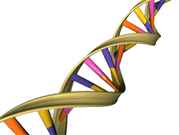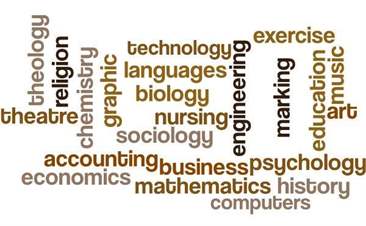Week 1
The first THINK module provides an introduction to research, including a brief discussion of its foundations, definitions, differentiating factors, and value in academia. Faculty will be asked to consider their own experience with inquiry, looking for potential research questions that could be explored. | |
Objectives:After successful completion of this module, faculty will be able to:
|
What is research?
 C. S. Peirce (1877) once stated that, “the object of reasoning is to find out, from the consideration of what we already know, something else which we do not know” (p. 3). Scientific research is more than just reasoning about a topic. Research involves the systematic collection of observed evidence to confirm what we know, shrink the boundaries of what we do not know, and establish pathways for future research on topics of interest. The overall goal of research is to add to the stock of human knowledge and ultimately contribute to providing solutions to practical human problems. From articulation of Newtonian physics to the discovery of DNA, science has involved momentous breakthroughs in human understanding that have shaped the way human beings live and the technologies we use (Kuhn, 1970; Watson & Crick, 1953). These breakthroughs have been built upon a core belief: the best evidence comes from observation and experimentation.
C. S. Peirce (1877) once stated that, “the object of reasoning is to find out, from the consideration of what we already know, something else which we do not know” (p. 3). Scientific research is more than just reasoning about a topic. Research involves the systematic collection of observed evidence to confirm what we know, shrink the boundaries of what we do not know, and establish pathways for future research on topics of interest. The overall goal of research is to add to the stock of human knowledge and ultimately contribute to providing solutions to practical human problems. From articulation of Newtonian physics to the discovery of DNA, science has involved momentous breakthroughs in human understanding that have shaped the way human beings live and the technologies we use (Kuhn, 1970; Watson & Crick, 1953). These breakthroughs have been built upon a core belief: the best evidence comes from observation and experimentation.
Francis Bacon (1620/2000), an English philosopher, provided an early articulation of what we now know as the scientific method. The method involves transcending mere trial and error, persuasion, and argumentation in favor of methods of observation, measurement, and experimentation. The scientific method involves observing objects in nature, accurately measuring characteristics of objects of observation, and testing conclusions through comparing different cases and evaluating results. If this seems complex, it is! For new researchers, comparing science to ordinary inquiry can sometimes help with grasping the complexity of science and the elegant simplicity of research.
Ordinary and scientific inquiry can be thought of as two ends of the same continuum. This means every day research has the same fundamental components as scientific inquiry. Suppose a person wishes to research Polynesian vacation ideas using Google. Such a person could just choose a vacation destination and hope it works out (trial and error), or contact a travel agent to become convinced about worthwhile options (persuasion and argumentation). Conversely, such a person could locate and read about travel destinations in Polynesia, such as Tahiti, through Google searches (observation), create an Excel spreadsheet of costs and benefits for each destination (measurement), and then compare and evaluate the differences between destinations (testing or experimentation). Clearly there are many similarities between ordinary and scientific research. Hopefully, this example helps you grasp the simplicity of the scientific method, but scientific research does not only involve these core components. Once you grasp these basic ideas, you can move on to more complex ideas, such as delving into the scientific literature.
every day research has the same fundamental components as scientific inquiry. Suppose a person wishes to research Polynesian vacation ideas using Google. Such a person could just choose a vacation destination and hope it works out (trial and error), or contact a travel agent to become convinced about worthwhile options (persuasion and argumentation). Conversely, such a person could locate and read about travel destinations in Polynesia, such as Tahiti, through Google searches (observation), create an Excel spreadsheet of costs and benefits for each destination (measurement), and then compare and evaluate the differences between destinations (testing or experimentation). Clearly there are many similarities between ordinary and scientific research. Hopefully, this example helps you grasp the simplicity of the scientific method, but scientific research does not only involve these core components. Once you grasp these basic ideas, you can move on to more complex ideas, such as delving into the scientific literature.
Scientific research typically involves identifying a gap or need in the scientific literature, creating research questions to be answered in the process of research, designing methods of inquiry for the research, collecting data, analyzing data, and reporting results. Identifying a gap or need in the scientific literature requires conducting a literature review. Such a review involves analyzing, evaluating, and synthesizing a sample of literature on a chosen topic. Creating research questions begins with the gap/problem statement discovered during the literature review. Designing the research requires choosing a research methodology and research design, which includes choosing procedures for collecting and analyzing the data. Finally, the results are reported in some published or unpublished way to add to the body of literature on the topic. Although this discussion on research provides some of the rationale behind research activities, it does not provide all of the reasons why you, as a faculty member, might be compelled to conduct research. The compelling reasons for conducting research are the topic of the next section.
Why learn research skills?
What is the value and purpose of learning research skills? There are several purposes for learning research skills. Graduate faculty members have an obligation to engage in scholarly activities that lead to published scholarly outcomes. This scholarly activity contributes to building and sustaining a graduate culture. Undergraduate faculty members often have an opportunity to supervise undergraduate student research, and such faculty members serve as role models for undergraduate students. Additionally, faculty rank is partially dependent upon produced scholarship. In order to move up in rank, faculty members must demonstrate published and unpublished scholarly outcomes, which require some level of expertise in research. GCU places a high value on scholarship as a means of faculty development and on maintaining a graduate culture. Learning research skills will prepare you to contribute to the stock on human knowledge, meet expectations of scholarly faculty, and develop your career by positioning you to move up in rank.
What are some ways to differentiate research?
There are a variety of ways to differentiate research, including (a) purposes, (b) methodologies, (c) designs, and (d) discipline differences. Purpose is the predominant way to differentiate research. The five generally accepted types of research purposes include basic, applied, summative evaluation, formative evaluation, and action research (Patton, 2015; see the "Purposes of Research" video). A common way to differentiate research is according to methodology: quantitative, qualitative, and mixed method research. In addition, each methodology has different designs or approaches: correlational and experimental (quantitative), phenomenological, case study, narrative, grounded theory (qualitative), and sequential and convergent (mixed method). Lastly, discipline differences are important, as research manifests differently in each field of research.
The five generally accepted types of research purposes include basic, applied, summative evaluation, formative evaluation, and action research
(Patton, 2015).
Ultimately, contributing to the body of human knowledge does not happen in general; it happens within academic disciplines. There are several classifications of academic disciplines, but the most widely accepted is Biglan’s (1973), which includes the matrix categories of hard, soft, pure, and applied. There are severe epistemological (what is considered knowledge) differences across disciplines (Marlene, Orpha, & Sue, 2003). These differences naturally lead to the use of different research methods and approaches, as well as different quality standards. For example, evidence-based practice in Nursing is much different than research in mathematics, or experiments in engineering. For these reasons, as a new researcher, you should explore these approaches and standards within your chosen discipline.
What are some ways to identify possible research topics?
Sometimes finding literature can be the most difficult step. Research articles can be located through the GCU Library (https://library.gcu.edu/) or Google Scholar (https://scholar.google.com/). In exploring topics within your discipline, you may discover empirical research. An empirical article is a research study report in which data are collected from physical artifacts or human subjects. The data are then analyzed and reported in the empirical article. Typically, at the end of empirical articles, the researcher(s) provide "recommendations for future research." These recommendations can be used as possible research projects. Additionally, theoretical papers and reviews of scientific literature can offer ideas on selecting a research topic. Although these papers and reviews do not derive from collected data, they can provide potential research directions on a topic of interest. Another way to generate ideas for research topics is from professional associations within your discipline.
The following is a concise list of some relevant professional associations from a variety of disciplines. Most of the associations sponsor academic journals, magazines, and/or conference proceedings, and links to these outlets are often provided on the association's website. These scholarly outlets can provide exemplars to determine the common characteristics and standards for research within your discipline.
American Academy of Religion: https://www.aarweb.org/
American Accounting Association: http://aaahq.org/
American Chemical Society: https://www.acs.org/content/acs/en.html
American Counseling Association: https://www.counseling.org/
American Economic Association: https://www.aeaweb.org/
American Educational Research Association: http://www.aera.net/
American Institute of Biological Sciences: https://www.aibs.org/home/index.html
American Institute of Graphic Arts: http://www.aiga.org/
American Marketing Association: https://www.ama.org/Pages/default.aspx
American Mathematical Society: http://www.ams.org/home/page
American Nurses Association: http://www.nursingworld.org/
American Political Science Association: http://www.apsanet.org/
American Psychological Association: http://www.apa.org/
American Society of Civil Engineers: http://www.asce.org/
American Society of Exercise Physiologists: https://www.asep.org/
American Society of Mechanical Engineers: https://www.asme.org/
American Sociological Association: http://www.asanet.org/
Association for Information Science and Technology: https://www.asist.org/
Association for Theatre in Higher Education: http://www.athe.org/
Evangelical Theological Society: http://www.etsjets.org/
Modern Language Association: https://www.mla.org/
National Endowment for the Arts: https://www.arts.gov/
National Institute of Nursing Research: https://www.ninr.nih.gov/
Organization of American Historians: http://www.oah.org/
Steps to Selecting a Topic
- What general topics are you interested in researching?
- What is the purpose of your research (basic or applied)?
- Which professional associations might have information about your topic?
- Which academic journals might have information about your topic?
- Which "recommendations for future research" have you found in empirical studies published in academic journals?
References
Bacon, F. (2000). The new organon. In L. Jardine & M. Silverthorne (Eds.), Cambridge texts in the history of philosophy: Francis Bacon, the new organon. Cambridge, England: Cambridge University Press (Originally published in 1620).
Biglan, A. (1973). The characteristics of subject matter in different academic areas. Journal of Applied Psychology, 57(3), 195-203.
Kuhn, T. (1970). The structure of scientific revolutions (2nd ed.). Chicago, IL: The University of Chicago Press.
Marlene, S., Orpha K., D., & Sue, B. (2003). Epistemological Beliefs across Domains Using Biglan's Classification of Academic Disciplines. Research In Higher Education, (3), 347-366.
Patton, M. Q. (2015, January 23). Purposes of research [Video File]. Retrieved from https://youtu.be/SsTaU4wnAtI?t=38s
Peirce, C. S. (1877, November). The fixation of belief. The Popular Science Monthly, 12, 1-14.
Watson, J. D., & Crick, F. H. (1953). Genetical implications of the structure of deoxyribonucleic acid. Nature, 171(4361), 964-967.
Your assignment for Week 1 is to brainstorm about research in your own discipline and submit a bulleted list of of 3-4 potential research topics that could be developed into research questions. You will receive feedback about your ideas that will assist you in choosing one topic that you will further develop into a research project throughout the upcoming modules. |
Page Options
